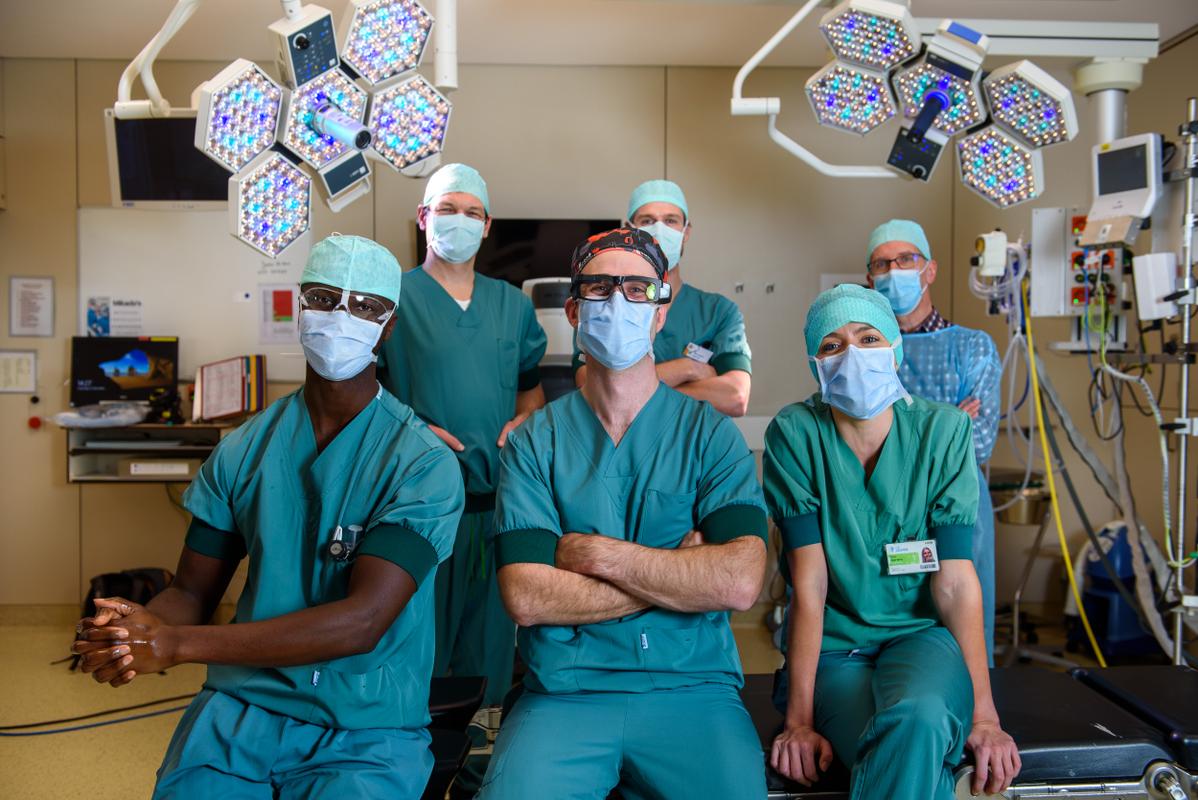Under normal circumstances, students in the cardiovascular diseases class get the opportunity to physically attend a surgical procedure in the operating theatre. With the current circumstances, lecturer and cardiac surgeon prof. dr. Wouter Oosterlinck had to look for an alternative solution.
With the help of high-technological camera glasses, so called smart glasses, professor Oosterlinck was able to live stream a heart bypass operation to the students at home. The smart glasses – developed by Iristick with the medical software of Rods&Cones in collaboration with Medtronic – have been fitted with two cameras and a microphone. This makes it possible to follow a surgical procedure in the greatest detail albeit from a distance, and this from the surgeon's perspective.
“A live stream can of course never capture the real atmosphere of the operating theatre, that will always be something magical, but for educational purposes this is a very valuable alternative”, professor Wouter Oosterlinck says. “Students can follow the procedure from start to finish: in a first phase, we remove an artery from the thoracic cavity with the help of a robot, we then use the artery to bypass the narrowed coronary artery. Thanks to the smart glasses technology, the students can not only follow the whole procedure, they are also in direct contact with me and can ask relevant questions.”
The students are also very enthusiastic about the initiative, as Charlotte Verlinde indicates. “We now have a much better idea of the theoretical knowledge we acquired in a previous stage. That knowledge will stay with us better. The technology is also very suitable for this type of surgery, which is done via miniscule cuts. Even if we had been able to be present in the operating theatre, we still wouldn't have been able to follow the operation in such detail. You obviously miss the physical experience, but in this case it was good alternative.”
Important experience
“A lot of medicine students crave clinical experience, but as a result of the corona crisis it not possible to organise all educational activities in the hospital”, professor Oosterlinck says. “Evidently we cannot afford to slow down their education or offer less optimal circumstances. Quite the contrary, once again, this crisis emphasises the need for well-trained physicians and good nurses. Which is why it was important to be able to give the students this OR experience.”
“The operation really gave us something to look forward to”, according to student Sadaf Davoudi. “If you have to study from home, day in day out, it is hard to keep focussed. An initiative such as this gives energy and motivation to go on. The technology can also be an easy way of bringing various disciplines into contact with one another. For me personally it has definitely kindled my interest in cardiac surgery.”
Educational added value
“We will definitely assess how we can use these smart glasses more extensively”, Wouter Oosterlinck says. “The technology can not only be used for filming operations. Students can e.g. follow a consultation from a distance. This will also reduce the impact on the patients.”
“The corona crisis has forced us to be inventive and equipment such as these smart glasses can be part of the solution”, according to dean Paul Herijgers (Faculty of Medicine). “This does not mean that we want to digitise every type of contact or communication, but digital tools such as this provide us with new possibilities to improve the training.”
